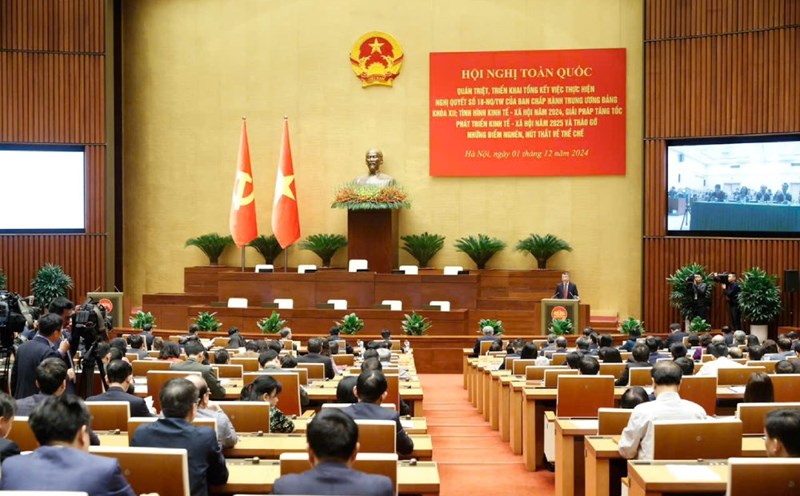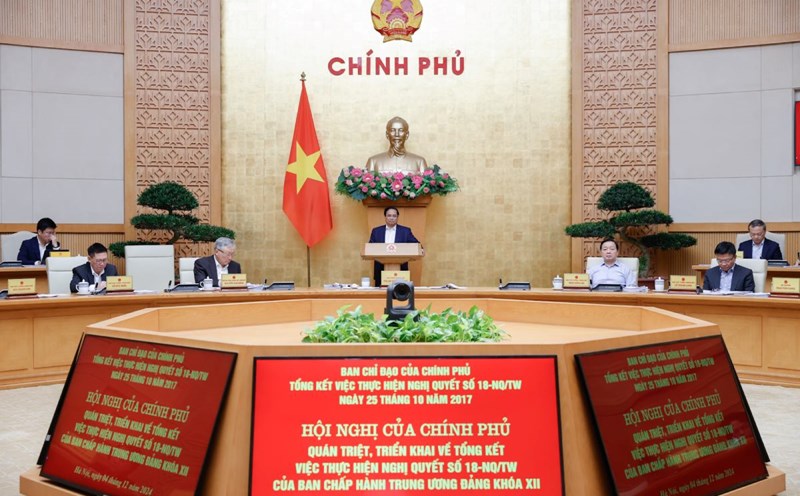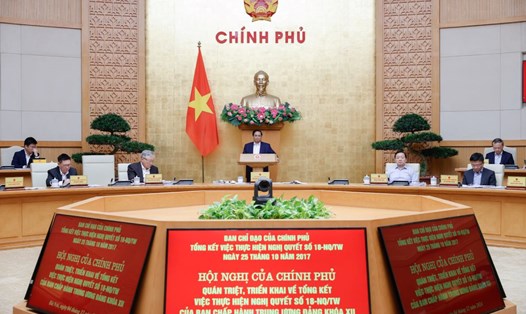On January 15, the Ministry of Justice said that the Ministry of Home Affairs has sent the draft Law on Government Organization (amended) to the Ministry of Justice for appraisal.
According to the draft Law on Government Organization (amended), in terms of scope of regulation, this Law stipulates the position, functions, tasks, powers, organizational structure and responsibilities of the Government; tasks, powers and responsibilities of the Prime Minister and other members of the Government; positions and functions of ministries, ministerial-level agencies and agencies under the Government; tasks, powers and responsibilities of Ministers and Heads of ministerial-level agencies; principles of organization and operation, working regime of the Government; working relationship between the Government and relevant agencies in exercising executive power.
Regarding the position and functions of the Government, the Government is the highest state administrative body of the Socialist Republic of Vietnam, exercises executive power, and is the executive body of the National Assembly. The Government is responsible to the National Assembly and reports on its work to the National Assembly, the National Assembly Standing Committee, and the President.
Article 3 of the draft law stipulates the organizational structure and members of the Government.
Accordingly, the Government consists of the Prime Minister, Deputy Prime Ministers, Ministers and Heads of ministerial-level agencies. The number of Government members is decided by the Prime Minister and submitted to the National Assembly for decision.
The organizational structure of the Government consists of ministries and ministerial-level agencies. The establishment and abolition of ministries and ministerial-level agencies shall be decided by the Government before the National Assembly.
The principles of organization and operation of the Government are stipulated in Article 6 of the draft Law.
Accordingly, the principles of organization and operation of the Government are:
Comply with the Constitution and laws, manage society by the Constitution and laws, implement the principle of democratic centralism; ensure gender equality.
Organize a multi-sectoral, multi-field, streamlined, efficient, effective and efficient administrative management apparatus; ensure the principle that lower-level agencies submit to the leadership, direction and strictly comply with the decisions of higher-level agencies.
Clearly define the tasks, powers and responsibilities between the Government, the Prime Minister and Ministers, Heads of ministerial-level agencies and the functions and scope of management between ministries and ministerial-level agencies; promote the personal responsibility of the head.
Decentralization and reasonable delegation of power between the Government and local authorities, ensuring the Government's unified management rights and promoting the proactiveness, creativity and self-responsibility of local authorities.
Implement modern, effective and efficient national governance; build a unified, smooth, continuous, democratic, rule-of-law, professional, modern, scientific, clean, public, transparent, disciplined and disciplined administrative system; create a favorable environment for people and businesses; and be subject to inspection and supervision by the People.











